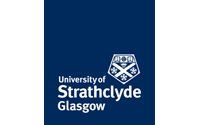Operations and maintenance management is a cornerstone of organizational efficiency, ensuring that assets perform optimally while minimizing downtime and costs. In industries ranging from manufacturing to energy production, the ability to plan, schedule, and execute maintenance activities effectively can significantly impact profitability and operational resilience. Total Productive Maintenance (TPM), a holistic approach to equipment management, further amplifies these benefits by fostering collaboration across departments and embedding a culture of continuous improvement. This course addresses the growing need for professionals who can bridge the gap between theoretical frameworks and practical implementation in operations and maintenance.
The modern industrial landscape is characterized by increasing complexity, driven by technological advancements, regulatory requirements, and the demand for sustainability. Organizations often face challenges such as unplanned downtime, inefficient resource allocation, and a lack of alignment between maintenance strategies and business goals. These gaps not only hinder productivity but also expose companies to risks such as safety incidents and reputational damage. By equipping participants with advanced tools and methodologies, this program aims to address these pain points and empower organizations to achieve operational excellence.
Drawing on established theories such as Lean Manufacturing, Reliability-Centered Maintenance (RCM), and the Deming Cycle (Plan-Do-Check-Act), the course integrates best practices with innovative approaches. For instance, a case study of Toyota’s implementation of TPM highlights how systematic planning and employee involvement reduced defects by 50% and improved overall equipment effectiveness (OEE) by 20%. Such examples underscore the transformative potential of mastering integrated maintenance strategies.
Participants will gain insights into predictive and preventive maintenance techniques, enabling them to transition from reactive to proactive management. The course emphasizes the importance of data-driven decision-making, leveraging tools like condition monitoring and failure mode analysis to anticipate issues before they escalate. This shift not only enhances asset reliability but also aligns maintenance activities with strategic objectives, creating value for both individuals and organizations.
For professionals, mastering these competencies translates into career advancement opportunities, as employers increasingly seek candidates with expertise in optimizing operational workflows. Organizations, on the other hand, benefit from reduced costs, improved safety standards, and enhanced competitive positioning. The program also explores emerging trends such as Industry 4.0 and digital twin technology, preparing participants to navigate the future of maintenance management.
Ultimately, this course serves as a catalyst for change, empowering participants to drive innovation and efficiency within their organizations. Whether you are a seasoned maintenance manager or an aspiring operations professional, the skills acquired here will enable you to contribute meaningfully to your organization’s success while staying ahead of industry trends.




















































